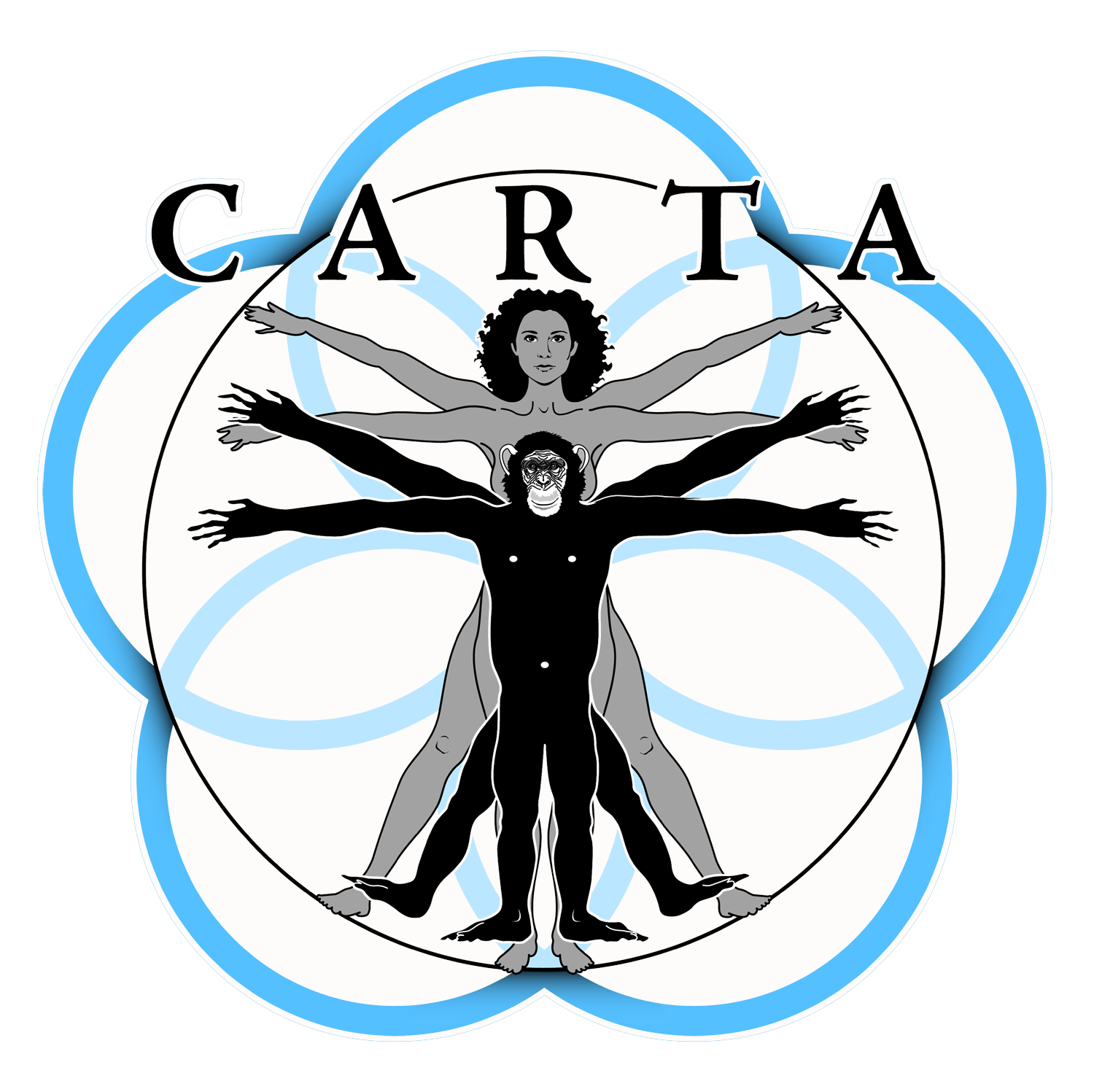Proudly collaborating with these organizations
Center for Academic Research and Training in Anthropogeny (CARTA)- UC San Diego
The Center for Academic Research and Training in Anthropogeny* (CARTA) is a virtual organization formed in order to promote transdisciplinary research into human origins, drawing on methods from a number of traditional disciplines spanning the social, biomedical, biological, computational and engineering, physical and chemical sciences, and the humanities. CARTA began as a collaboration between faculty at UC San Diego and at the Salk Institute for Biological Studies, along with interested scientists at other institutions. In January 2008, CARTA became a UC San Diego recognized Organized Research Unit (ORU).
Questions about origins rank among our greatest unsolved mysteries – the origin of the universe, the origin of life, the origin of the living cell, and the origin of humans. It is the origin of humans, or anthropogeny, that CARTA has singled out to explore and understand:
*Where did we come from?
*How did we get here?
CARTA was founded on the conviction that answers are likely to come not from a single line of investigation, but from a wide variety of approaches within the biological, biomedical, and social sciences, as well as aspects of the arts and humanities, with important technological input from the physical, chemical, and computing sciences.
There is also a practical side to anthropogeny as the study of human origins has a major impact on, and relevance to, issues related to medicine, biology, the organization of society, the upbringing of our young, and the interactions of humans with one another and with our environment.
While interest in our origins is far from new, we humans now have the ability to approach anthropogeny in a systematic and multidisciplinary manner. We can and must integrate the vast amount of relevant information coming in from so many different fields, such as comparative genomics, to expand our understanding of language, behavior, and culture. CARTA brings together scholars with expertise spanning all of the relevant fields, and facilitates the speed of progress through transdisciplinary collaborations, as opposed to the old model of interdisciplinary collaborations between two disciplines.
Such group efforts can also generate novel, testable hypotheses and agendas for fruitful research while training a new generation of young minds dedicated to the pursuit of the problem and its many practical and philosophical implications.
